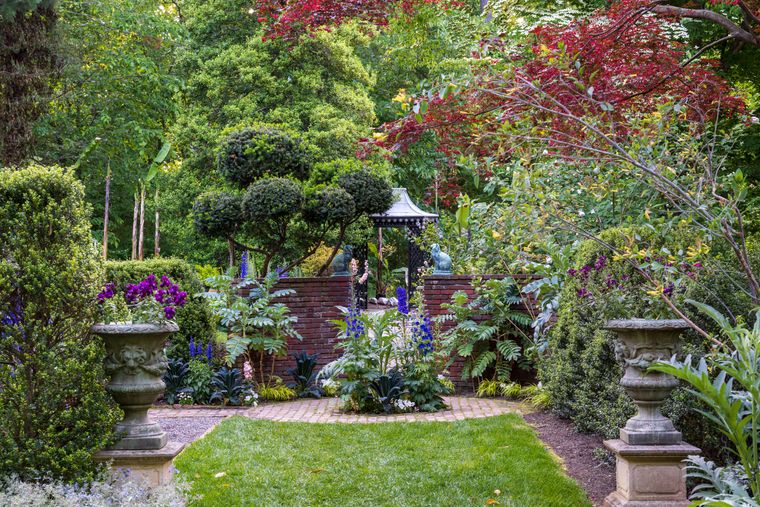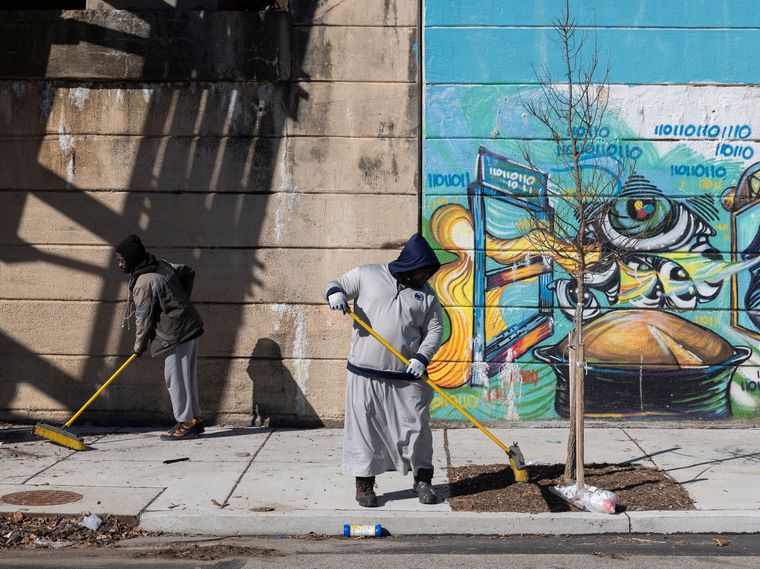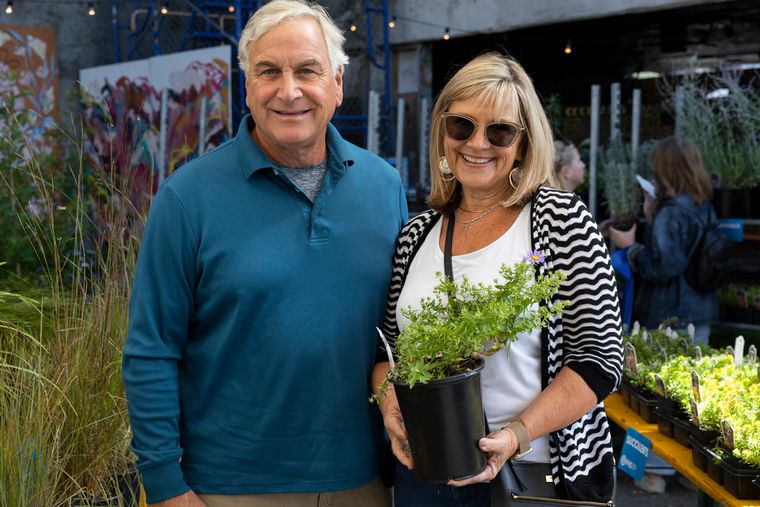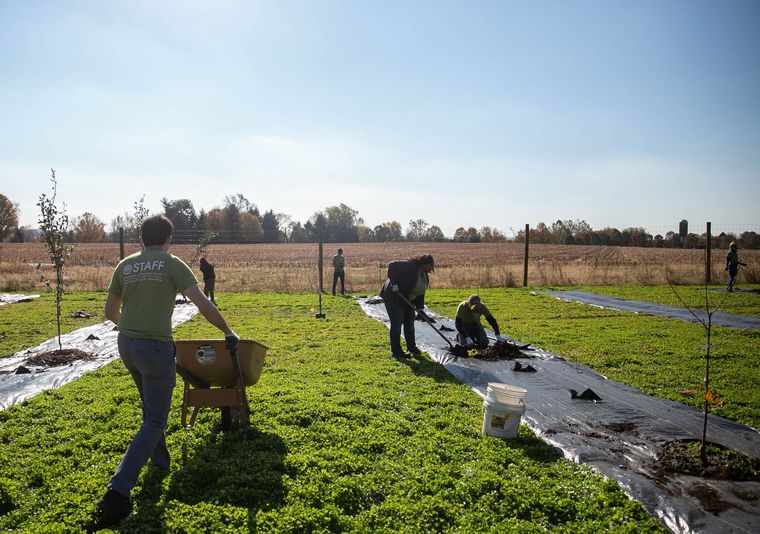



2020 PHS Gold Medal Plants Announced

FOR IMMEDIATE RELEASE
Contact:
David Cheng, Communications Manager
Pennsylvania Horticultural Society
dcheng@pennhort.org | 215-988-1631
Six Plants Selected as Outstanding Plants for the Mid-Atlantic Garden
[PHILADELPHIA, PA – October 16, 2019] – The Pennsylvania Horticultural Society has selected the 2020 Gold Medal Plants, recognizing exceptional plants for both home gardeners and professional landscapers. The PHS Gold Medal Plant Program spotlights outstanding trees, shrubs, vines, and perennials for gardens in the mid-Atlantic region (growing zones 5 to 7). Plants are chosen for their beauty, hardiness, and ecological benefits.
“PHS has incorporated these plants in many of the gardens and landscapes that we manage and can recommend them as reliable plants for our region’s growing conditions. Many promote pollinators and birds in the garden and are deer resistant,” said Julia Thomé, Director of Gardener Engagement at PHS. “A selection of Gold Medal Plants will be on display at the 2020 Flower Show, and PHS staff and volunteers are available to talk with you about these and other plant choices for the home garden.”
Since 1979, the Gold Medal Plant program has honored and promoted plants of outstanding merit. The program was originally conceived by noted nurseryman Dr. J. Franklin Styer, who realized homeowners and gardeners needed to learn about superior woody plants for their landscapes. Five years ago, PHS began including perennial plants in addition to woody plants, in its selections. Plants are nominated from submissions by home gardeners, garden designers, horticulturists, landscape architects, nursery owners, and propagators.
Once nominated, plants are reviewed by a committee of expert horticulturists led by Chairman Steve Mostardi of Mostardi Nursery. Through in-person discussions and an online rating system, the Gold Medal Plant Committee selects the winning plants, on a yearly basis, that meet the rigorous criteria for excellence set forth by PHS.
Gardeners who acquire a Gold Medal designated plant can be assured the plant will exhibit standards of excellence for pest and disease resistance, as well as ease of growing when planted and maintained appropriately.
2020 PHS Gold Medal Plants
Aronia melanocarpa “Viking” | Black Chokeberry
Flowers bloom in spring, followed by showy black fruits and red fall foliage. Fruits are edible when cooked into jams, salsa, or baked goods. Plant in combination with Virginia bluebells, Bowman’s root and/or short-toothed mountain mint. Can be planted in mass as a screen. Deciduous shrub; height 3-6’; zones 3-8.

Carpinus caroliniana | American Hornbeam (aka Ironwood, Musclewood)
Small size understory tree, ideal for residential sites. Catkins in March give way to yellow nutlets in late summer. Yellow-orange fall foliage. Steel gray bark provides winter interest. Plant in combination with native viburnums, grasses, and/or sedges. Deciduous tree; height 20-30’; slow growing, zones 3-9.
Coreopsis verticillata ‘Zagreb’ | Threadleaf Coreopsis
Bright yellow flowers, compact and upright, easy to grow in-ground or containers. Reblooms if sheared mid-summer. Great in combination with evergreen shrubs, Little Bluestem ornamental grass, native butterfly weed, and/or veronica. Herbaceous perennial; height 12-18”; zones 3-9.

Geranium X cantabrigiense ‘Biokovo’ | Cranesbill Geranium
Low growing and compact; will spread slowly as a groundcover. White flowers tinged with pink in spring. Plant in combination with a variety of bulbs such as daffodils or Allium ‘Summer Beauty,’ lady’s mantle, and/or fall blooming toad lilies. Herbaceous perennial; height 10-12”; zones 5-8.

Hydrangea arborescens ‘Haas’ Halo’ | Smooth Hydrangea
Large lacecap flowers, blue-green foliage. Spent flowers provide winter interest. Drought resistant once established. Plant in combination with the ninebark shrubs, Siberian bugloss, leadwort, Jacob’s ladder, smooth aster and/or reed grass. Deciduous, woody shrub; height approx. 4’; zones 3-9.

Perovskia atriplicifolia ‘Little Spire’ | Russian Sage, Little Spire
Compact and erect sub-shrub, drought tolerant. Striking light blue to violet color flowers. Aromatic silvery foliage. Great in combination with purple coneflowers, phlox ‘Jeana,’ sneezeweed, betony, and/or Foerster’s feather reed grass. Woody perennial; height 2-3’; zones 5-9.
About PHS
The Pennsylvania Horticultural Society, an internationally recognized nonprofit organization founded in 1827, plays an essential role in the vitality of the Philadelphia region by creating healthier living environments, increasing access to fresh food,growing economic opportunity and building deeper social connections between people. PHS delivers this impact through comprehensive greening and engagement initiatives in more than 250 neighborhoods; an expansive network of public gardens and landscapes; year-round learning experiences; and the nation’s signature gardening event, the Philadelphia Flower Show. PHS provides everyone with opportunities to garden for the greater good as a participant, member, donor, or volunteer. For information and to support this work, please visit PHSonline.org.